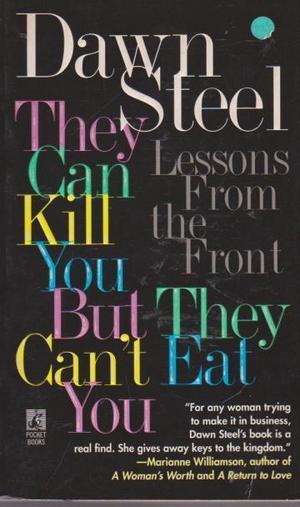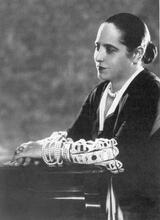Dawn Steel
Steel began as a secretary and sports writer but found her niche as merchandising director of Penthouse from 1967–1975, where she helped get adult magazines displayed in mainstream markets. She then joined Paramount Studios, where she made key marketing deals with McDonalds and Coca Cola for the first Star Trek film. She began producing movies for Paramount, including Flashdance, and after her promotion to president in 1985 produced Footloose, Top Gun, and other hits. In 1987 she left to head Columbia TriStar, saving the studio from bankruptcy, then moved to Disney as a producer in 1989, where she clashed with studio heads. Determined to strike out on her own, she founded Atlas Pictures with her husband in 1994, producing City of Angels, and wrote her memoir, They Can Kill You, But They Can’t Eat You, in 1993.
Early Life and Career
Dawn Steel was born Dawn Spielberg (no relation to Steven Spielberg) in Manhattan and raised in Little Neck, Long Island. Her father was a former competitive weight lifter known as “The Man of Steel” who later became a zipper salesman. Because he believed that his Jewish name would hurt sales to the U.S. army, he changed the family name to Steel in accordance with his former career.
Dawn attended Boston University but dropped out and started her work career as a secretary. Her career path began when she acquired a job at Stadia Books, a publishing house specializing in sports publications. Her work was to compile football statistics, but when she was segregated as a woman from the Yankee Stadium press box she was unable to do the work. As a result of this slight, she left for Penthouse magazine, where she was promoted to merchandising director and played a key role in getting adult-oriented magazines displayed in mainstream markets. In 1975 she started her own company, Oh Dawn!. Her signature product was Gucci toilet paper with the famed designer’s logo. The Italian fashion mogul was not pleased and sued. In 1978 she left her business and also divorced her husband, Ronnie Rothstein.
A Hollywood Success Story
It was through one of her lawyers that she got her first studio job at Paramount merchandising department. One of her early assignments was the first Star Trek film, for which she initiated cross marketing deals with McDonald’s and Coca-Cola. She made her mark. Her merchandising prowess became legendary and attracted the attention of studio head Michael Eisner, who offered her a chance to produce films under division president Don Simpson. In 1982 Steel set out to persuade her employers to allow her to produce Flashdance. This huge success would be the first of a long line of successes that resulted in Steel’s ascent to President of Production when Eisner left the studio. She became the second female studio production head in studio history; her precursor was Sherry Lansing.
She remained with Paramount until 1987 when she was wooed into taking over the floundering Columbia TriStar, a division of Columbia. She was the first woman to hold such a high-ranking studio position. During her two-year reign, she successfully stabilized the company. In 1989 she led the sale of the company to Sony and earned seven million dollars. When Jon Peters and Peter Guber took over the company Steel was slowly pushed out. She moved to Disney and again worked under Eisner and Jeffrey Katzenberg as an independent producer. A battle over the production of Cool Runnings, about a Jamaican Olympic bobsled team, ended her relations at Disney and the film was not finished until she left. She was correct in her predictions however; the film was a hit. Her last Disney project was to produce a benefit, For Our Children, for children with AIDS, with the Disney Channel. Later Steel founded Atlas Pictures and, working with Turner Pictures, went on to produce many more films, including City Of Angels, a remake based upon the Wim Wenders German-language classic Wings Of Desire.
Legacy
In addition to her production work Steel was involved with the California Democratic Party. She published her memoirs, They Can Kill You, But They Can’t Eat You, in 1993. Steel was a prime example of how guts, hard work and a “can-do” attitude could be harnessed to achieve greatness in the poisonous environment of Hollywood. She was diagnosed with a brain tumor and died in Los Angeles at the age of fifty-one in December, 1997. (Thanks to Sandra Brennan, All Movie Guide—JP).





